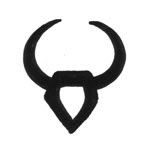Avoiding dehydration is key to optimal training and fat buring. This is not as easy as it sounds because most people rely on "thirst" as their alarm clock to drinking fluids. Thirst, however is a delayed feeling that does not happen until a person has already lost 1 to 2 liters of fluid.
Try using these specific intervals for taking in fluids to be sure you are properly hydrated.
- drink at least 16 ounces of fluid 2-3 hours before exercise & weigh yourself before any intense training sessions for post workout assessment.
- drink 7-10 ounces every 10 to 20 minutes during exercise
- after training reweigh yourself and drink 24 ounces for every pound of weight loss during exercise.
Always remember that losing weight during exercise is just temporary water loss and will inhibit fat burning for hours if not replenished immediately.
Water versus other hydration options
Sweetened fruit juices, energy drinks and sports drinks that exceed 6% sugar do not adequetly contribute to hydration during exercise. They hinder water absorption and the emptying of fluids from the stomach to the rest of the body. In addition, energy drinks high in caffeine deplete natural energy levels and the body's ability to deal with stress and fatigue. In addition, the diuretic effect of caffeine contributes to dehydration, and the alkaloids also can inhibit proper digestion.
So what's best ?
Don't wait until you are thirsty to drink. Use time intervals to keep you hydrated poperly. Chose drinks that are less than 7% sugar content and don't get caught in the hype of energy drinks. They do more harm than good.
References: ACSM's Certification in Review 2nd Edition, ACSM Resource for Trainer's 2nd Edition, Spinner's Instructor's Guide, Mad Dog Athletics

No comments:
Post a Comment